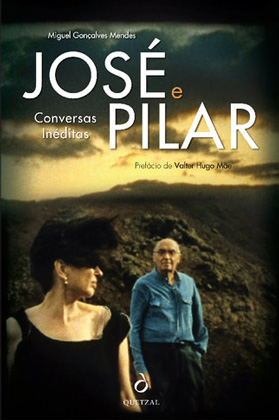In the film José and Pilar, the director Miguel Gonçalves Mendes presented to the public an unfamiliar Saramago. Following his day to day, revealed the intimacy of one of the most fascinating writers of the Portuguese language.
In this José and Pilar - Unpublished Conversations, Miguel gathered interviews during the period in which coexisted with the author and his wife, the Spanish journalist Pilar del Río. Are sincere and touching testimonials about work, death and, of course, love for one another.
Who gives the key to the interviews is Pilar herself. “I think that few writers, and that those who read it carefully and knows will notice, as they are themselves in their work. There are few differences between the book's author, the narrator's voice and what the book expresses.” So, they are present in the conversations the disconcerting mood of Saramago, the familiar rhythm of his sentences and, above all, the same universe that interested him throughout his career.
This view of a private world, printed in his work, appears here at unexpected moments: when the author speaks of a dream he had in his childhood or notices the landscape during a car ride. Or when he interrupts Pillar’s testimony to watch her being interviewed.
But, if there really is distance between Saramago the writer and Jose from this book, it becomes even clearer when he turns to politics and religion, issues that always accompanied him. With a critical eye revises controversial episodes of his career and advocates a free life "of this crippling superstition", which is the belief in God.
Although ruthless in his positions, what stands out in the talks is the compassionate look with the world, genuine belief in freedom. The man who wanted to die "lucid and with open eyes" comes here, anyway, as anyone who followed the advice he used to give young writers: "Do not look ahead and not waste your time".
“Broad and universal. As delicate as strong. Very honest.” - Preface from Valter Hugo Mãe
